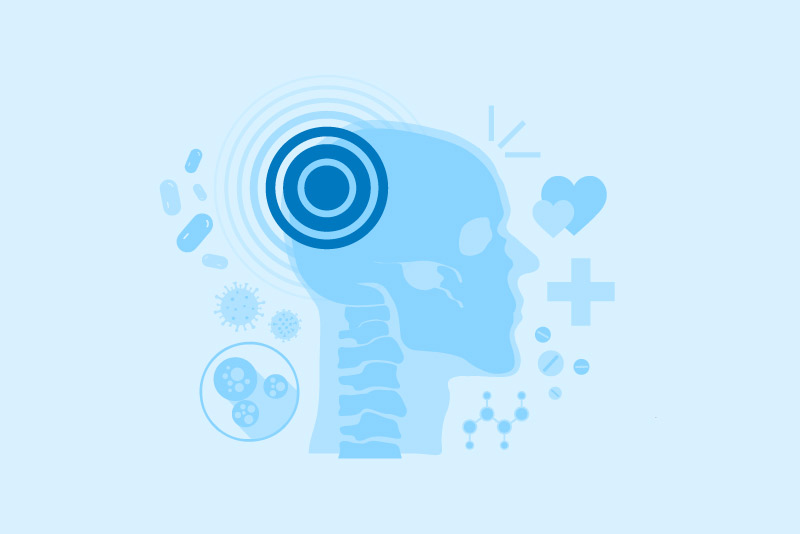What are the most common causes of eye twitching?
Eye twitching can have many different causes, depending on the specific type. Some factors are common across all forms of eye twitching or can contribute to other causes. And some factors may not cause it, but they can make it worse.
The factors include:
- Stress or anxiety.
- Sleep deprivation or fatigue.
- Stimulants like caffeine.
- Prescription medications and nonmedical drug use.
- Bright lights or light sensitivity.
- Nutrition (some twitching may happen because you need certain nutrients).
- Eye strain.
- Nicotine use.
Fasciculations
Fasciculations are usually benign (harmless). They can happen for several reasons, including:
- Benign fasciculation syndrome.
- Stimulants like caffeine or nervous system depressants like alcohol.
- Physical activity or overexertion.
- An overactive thyroid gland (hyperthyroidism).
- Viral infections (the virus can affect your nerves and leave behind lingering — but usually harmless — spasms and twitches).
But in rare cases, fasciculations can be a sign of more severe neurological conditions. These can be conditions that affect your nerves, brain or both. The most well-known of these conditions is amyotrophic lateral sclerosis (ALS), better known as Lou Gehrig’s disease (for the famed U.S. Major League Baseball player who died in 1941 at age 37 because of it).
Myokymia
Myokymia is very common. It’s often the result of multiple factors adding up, especially the common ones like stress, lack of sleep, caffeine, etc.
In some cases, though, myokymia has very specific causes. They include:
- Medications (including antipsychotics, antiseizure drugs or calcium channel blockers).
- Autoimmune and nervous system conditions like multiple sclerosis (MS), or tumors like gliomas (it’s rare for either to be the cause of myokymia, though).
Blepharospasm (eyelid spasms)
Blepharospasm has two types: primary and secondary. Primary means it happens without another condition or issue causing it. Secondary means it happens as an effect of something else.
Benign essential blepharospasm (BEB) is the most common primary form of this condition. Experts know BEB happens for nerve-related reasons, but they don’t yet fully understand how or why. It also tends to cause a few other symptoms, especially light sensitivity (photophobia) and dry eye.
Secondary causes of blepharospasm can include:
- Dystonia or conditions that can cause it.
- Meige syndrome (but there’s some debate about whether this condition causes eye twitching or only happens alongside it).
- Tardive dyskinesia.
- Certain medications, especially Parkinson’s disease medications.
- Wilson’s disease (a rare genetic condition that makes copper accumulate in your body).
- Seizures and epilepsy (rare).
Hemifacial spasm
This type of twitching can involve your brain, nerves on one side of your face or both. It’s unpredictable and uncontrollable.
This also has primary and secondary forms. The primary form usually happens when blood vessels in your face curl, form a loop and press on a nerve. The compressed nerve reacts and fires signals to attached muscles, causing twitches and spasms.
Hemifacial spasm can also happen as a secondary effect of more serious conditions. They include:
- Trauma and injuries that cause nerve or brain damage.
- Bell’s palsy.
- Dystonia (this can also happen with other forms of eye twitching).
- Lesions on your brainstem.
- Brain tumors (including cancer).
- Tumors on your parotid glands (these produce saliva, and they’re near the upper back of your mouth on the inside of your cheeks).
- Middle ear infections (otitis media) or infections of surrounding structures, like mastoiditis.
Nystagmus
Nystagmus is an uncontrolled back-and-forth (oscillation) movement of your eyes. Some forms of it are normal and expected. They can happen because of how your eyes move or follow movement.
Other forms of nystagmus are more situational. For example, nystagmus is more likely to happen if you’re tired, consume caffeine or alcohol (especially when your blood alcohol content is high enough to cause intoxication), and more.
And nystagmus can also be a sign of certain diseases. Your eye care specialist may refer you to another specialist, like a neurologist, if they suspect this could be the case.
link

